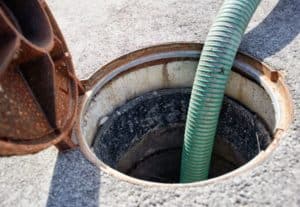While it is not the most glamourous subject to talk about, there is no getting away from household waste management. Both the material trash that your home generates and the human waste are big topics that homeowners need to discuss so they can find a better solution.
Many homes are connected to a general sewage system which takes care of everything for you. However, if you do not have the privilege of being connected to the mains in this manner or are looking for an alternative, then you should consider using a septic tank.

Septic Tanks 101
Because all of the wastewater generated in residence is routed into that tank, the septic tank is integral to the septic system. Solid debris and scum begin to separate from the liquid when the wastewater is trapped in the chamber.
The waste contents sink to the bottom of the tank and are broken down by anaerobic microorganisms. To speed up this biological process, some homeowners utilize chemicals. Scum rises to the surface of the liquid and floats above it, producing a layer.
The resultant liquid is then dumped into a drain field, where it finally percolates into the soil through a pipe.
How Does It Work?
Septic tanks are made to hold the wastewater that is generated throughout your home and are connected to all internal systems through the pipework.
If you do not live close to municipal services, then it is likely that you are already using a septic tank for the wastewater that comes from your home. Wastewater, such as from the bathroom, kitchen, or laundry, is usually washed away to the main sewer system, but this is not available in all areas of the country.
Instead, each home will have its own septic tank that connects to the key wastewater areas of the home through the pipework. Whenever you flush the toilet or drain the sink, this wastewater will travel through the pipework to the septic tank, where it is stored.
Most septic tanks are designed to store wastewater and help it separate.
These tanks will hold the wastewater long enough so that the solids will settle at the bottom, to form what is known as sludge, as the oils and greases float to the top and create scum.
To prevent blockages in your septic system, the tank will need to be pumped every few years.
Do I Need A Septic Tank?
Homes that are not close to any municipal systems and therefore cannot use the main sewage system of their town or city will require a septic tank.
If your home is located off-grid in this manner, then it is likely that you are already using a septic tank and need to be able to take care of it to prevent blockages or other issues.
For other homeowners, a septic tank allows greater control of the waste coming from your home and gives you control over everything. Controlling your own wastewater means you can become self-sufficient, and this is very appealing to many Candian homeowners these days.
Having a septic tank can keep you protected in any event, such as during heavy snowfall or blackouts where you are even more disconnected from your local authorities.
There are many benefits that come with using a septic tank, even if it is not essential in your area, so it is something to consider for your home. As long as you are willing to do the regular maintenance required, a septic tank can be a good thing for your home and a way to take greater control over things.
Things to Consider
Septic tanks should be serviced at least once every three years (in addition to the inspections). Buyers should consider how they could put more stress on the system than past occupants. The septic system may collapse under the weight of a family of six, mainly if only one or two people lived in the house before the sale.
If a household has visitors staying with them, they must examine if the septic tank can handle their needs. Experts advise drawing out a septic system diagram and keeping it on hand for both routine and emergency service visits.
Finally, homeowners should keep track of any septic system repairs they make. Future owners will undoubtedly want to know how it performed over time and how well it was cared for.

Recent Comments